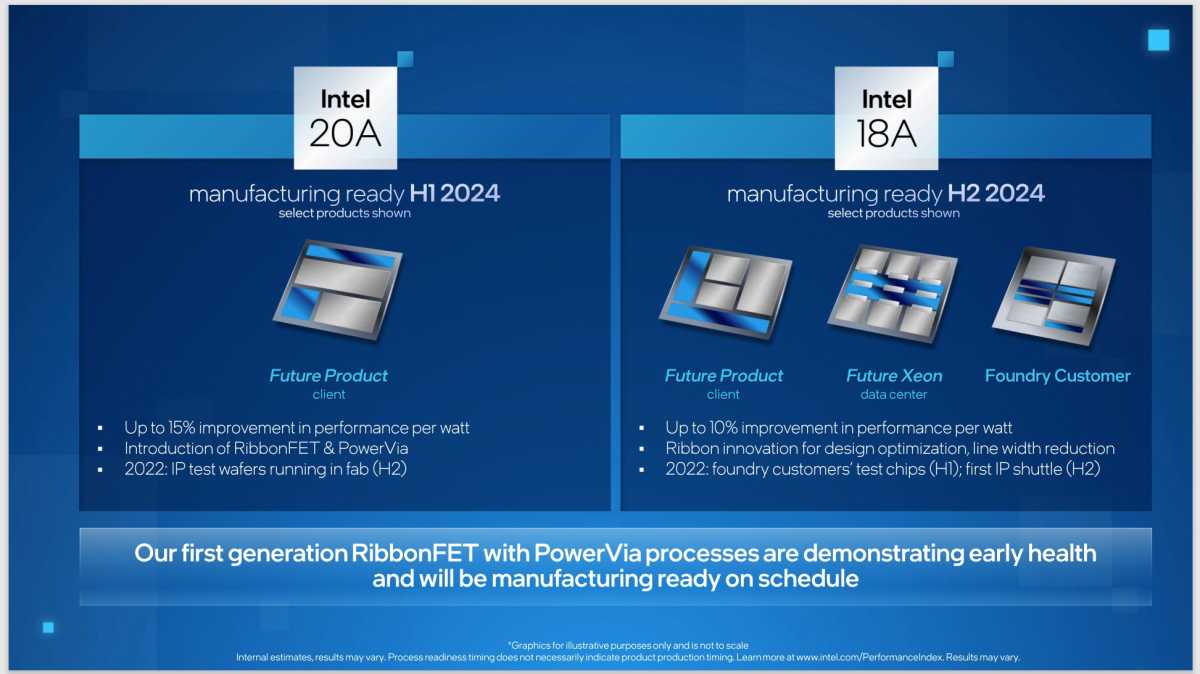
[ad_1]
The firm that in all probability makes your laptop computer’s processor will now manufacture the chip that’s in all probability inside your smartphone, too.
Intel has signed an settlement with Arm to fabricate Arm processors throughout a number of generations of merchandise. According to the settlement, introduced Wednesday by each firms, the deal will first deal with cellular SoCs for smartphones and tablets, after which increase into automotive, embedded merchandise for the so-called Internet of Things, then information facilities, aerospace, and authorities. Exact phrases weren’t introduced.
The Intel-Arm deal doesn’t contain Intel’s Client Computing Group (CCG), which designs the Core processors utilized in PCs and desktops. Instead, it’s an extension of Intel’s new foundry business, established in 2021 as a solution to spur Intel’s improvement of producing expertise but in addition present an vital new income stream. Intel basically “walls off” its foundry providers from the remainder of its enterprise, defending the mental property of its prospects. While Intel will also license and sell its own X86 chip designs to these prospects, an organization like Arm may select to easily deal with Intel as a producing line like TSMC.
Outsourcing chip manufacturing to an out of doors firm is typical in right now’s chip world, with Intel being a notable exception. Nvidia, like Arm, additionally makes use of foundries to fabricate its chips. The distinction is that Arm provides one other layer: prospects like Qualcomm and Samsung who can choose to make use of a chip foundry in the event that they select. It is these firms that can have extra freedom to do exactly that, in line with the deal; as a substitute of counting on an organization like TSMC, the Intel-Arm settlement permits them to fabricate an Arm processor on Intel’s personal manufacturing strains.

Intel
Specifically, Arm prospects can have entry to Intel’s 18A course of expertise, which Intel stated final yr is scheduled to come back on line in 2024 for Intel’s personal PC processors, its Xeon line, and foundry prospects as properly. Intel has highlighted two applied sciences as crucial for its 18A course of: PowerVia energy supply and RibbonFET, a gate-all-around expertise. (Both had been initially slated for Intel’s earlier 20A expertise.) The significance of RibbonFET, or gate-all-around expertise, is that it permits chip designers to begin increase, in three dimensions, relatively than only a flat two-dimensional chip. PowerVia enhances that by shifting how Intel routes energy all through the chip.
Intel may hypothetically present an Arm buyer with extra improvements in packaging and chiplets. The latter is taken into account to be vital, because it permits designers to bundle collectively smaller chip logic on particular person cube inside a bigger bundle. Traditionally, all of that logic can be manufactured on the identical course of expertise.
Chiplets enable a chip designer to combine and match, in order that they will ask completely different firms to manufacture logic, connecting them and packaging all of them collectively on the ultimate stage. Hypothetically, this is able to enable an Arm licensee to extra shortly tweak, manufacture, and ship Arm processors. Arm and Intel will work collectively to co-optimize Arm’s designs for Intel’s personal chip design and course of methodology.
“There is growing demand for computing power driven by the digitization of everything, but until now fabless customers have had limited options for designing around the most advanced mobile technology,” stated Pat Gelsinger, Intel’s chief government, in a press release. “Intel’s collaboration with Arm will expand the market opportunity for IFS and open up new options and approaches for any fabless company that wants to access best-in-class CPU IP and the power of an open system foundry with leading-edge process technology.”
[adinserter block=”4″]
[ad_2]
Source link